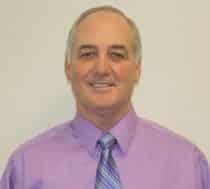A next-generation of measures and assessments at DeKalb ISD  Dr. John Booth, superintendent of the DeKalb Independent School District (ISD) in rural northeast Texas, believes in developing the whole child. His district is moving away from the rigid accountability standards of the past and looking at each child’s needs. Dr. Booth is tailoring learning to the student and incorporating the parents and the community. Local businesses, industry professionals, and future employers are being brought into the process. The community is best served by asking the parents and community, “What do you want? What are your aspirations for the child?” r. John Booth, superintendent of the DeKalb Independent School District (ISD), believes in community-based accountability.
Dr. John Booth, superintendent of the DeKalb Independent School District (ISD) in rural northeast Texas, believes in developing the whole child. His district is moving away from the rigid accountability standards of the past and looking at each child’s needs. Dr. Booth is tailoring learning to the student and incorporating the parents and the community. Local businesses, industry professionals, and future employers are being brought into the process. The community is best served by asking the parents and community, “What do you want? What are your aspirations for the child?” r. John Booth, superintendent of the DeKalb Independent School District (ISD), believes in community-based accountability.
“We’re in a social sector,” Dr. Booth notes. “We’re in a related sector. It has to be more about relationships. And that’s what community-based accountability does. It gets into the relationships between the school and the parent, the school and the child, and the school and the community. That’s the essence of community-based accountability.”
Dr. Booth and his district are members of TPAC, the Texas Performance Assessment Consortium (TPAC). TPAC is a group of 44 Texas school districts working to build on the success of community-based accountability systems already in use in districts across the state by developing next-generation measures and assessments that would enable broader use of such systems. “Once upon a time, the school handed a parent an education plan and said, ‘This is what your child needs,’” said Dr. Booth. “That’s no longer how the world works ─ the whole world, not just education.”
According to Booth, TPAC is on the cutting edge. He says TPAC is the future of school systems. “It is a great start with TPAC. These 44 districts will set a palette, a standard out there, and some variations will occur. Ten years from now, it will look completely different. Once people get it and see it ─ and buy into it ─ then we will see them go back to their home districts and say, ‘I want some of that for my child. I want to have that kind of input in my school.’ That’s how it’s going to grow. It can’t be a mandate. It’s not going to be pushed from the top down. It’s going to be bottom up.”
Dr. Booth believes in his path and has much hope for the future. He believes that the blossoming edtech revolution is the game-changer. “We got away from teaching the individual student because, as a society, we couldn’t afford to teach each child where they were,” he said. “But technology is allowing us to do that now ─ to bring different pieces, learning styles, and methods into classrooms even in the most remote areas.”
- nprEd – School Voucher Programs Should Be Clear About Disability Rights, Report Says
- Education Week – How Cheap Talk Fuels Bad School Accountability
- eSchool News – 5 questions to ask when rethinking accountability systems





